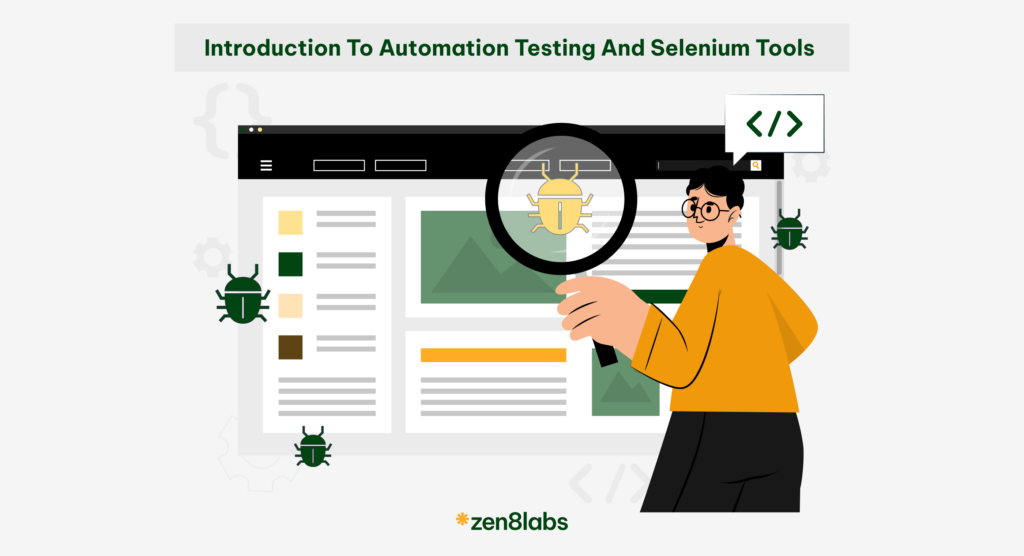In the fast-paced world of software development, the role of a software tester is crucial in ensuring the quality and reliability of software products. At zen8labs, our software testers possess a unique set of skills that enable them to excel in their role. In this blog post, we will explore the essential skills that make our testers stand out and contribute to the success of our projects.
1. Analytical skills
Software testing requires a keen eye for detail and the ability to analyze complex systems. Our testers at zen8labs possess strong analytical skills, allowing them to identify potential issues and defects in the software. They have a deep understanding of different testing techniques and methodologies, enabling them to design effective test cases and scenarios.

Analytical Skill helps testers to identify potential issues and defects
Imagine you’re testing a banking app. It’s crucial that when a user transfers money from one account to another, the correct amount is deducted from one account and added to the other. Our testers meticulously review the app’s requirements, specifications, and user stories. They dig deep to understand how the app should work. Our testers don’t just perform a routine test; they think like users and try various scenarios. For instance, they might attempt to transfer an amount that exceeds the account balance. This is where their analytical thinking shines. They can spot potential issues, such as the app crashing or displaying an incorrect error message. These insights are invaluable for ensuring the software functions are flawless.
By analyzing requirements, specifications, and user stories, our testers can ensure that the software meets the desired functionality and performance standards. They are skilled at identifying edge cases and potential vulnerabilities, ensuring that the software is robust and secure.
2. Attention to detail
In the world of software testing, attention to detail is paramount. Our testers at zen8labs have a thorough approach to their work. They carefully review documentation, code, and user interfaces to identify any inconsistencies or discrepancies.

Attention to detail to identify the tiniest discrepancy
Their approach ensures that even the tiniest discrepancy is promptly identified and fixed. They also document their findings clearly, providing developers with actionable insights for efficient issue resolution.
For example, when we examine the task assignment feature, our testers create and assign tasks to team members, paying close attention to the details. They verify that tasks are accurately assigned, deadlines are correctly set, and notifications are sent as intended. Their detailed testing ensures that project teams can rely on the tool to manage their assignments effectively
3. Technical knowledge
Having a solid technical foundation is essential for software testers at zen8labs. Our testers possess a deep understanding of databases, operating systems, and other technical aspects of software development. This knowledge allows them to effectively test different components of the software and understand how they interact with each other.

Technical knowledge helps testers to troubleshoot and debug issues
Moreover, technical knowledge helps our testers in troubleshooting and debugging issues. They can analyze error logs, understand stack traces, and identify the root cause of defects. This enables them to provide detailed and accurate information to developers, facilitating faster resolution of issues.
Consider a scenario where we are testing a mobile language learning application. Our testers immerse themselves in the application’s functionality, specifically focusing on in-app progress tracking. They understand the technical of data storage and retrieval, ensuring that the app accurately records the user’s learning process. They can identify issues like incorrect progress percentages or synchronization glitches that might hinder the user’s learning experience.
4. Problem-solving abilities
At zen8labs, problem-solving abilities are highly valued in our software testers. They possess a strong problem-solving mindset and are able to approach complex problems with a systematic and logical approach.

Problem solving abilities help testers to gather relevant information
When faced with a defect or an issue, our testers are skilled at isolating the problem and identifying the underlying cause. They use their analytical skills to gather relevant information, analyze data, and perform root cause analysis. This helps them in identifying the specific conditions or actions that trigger the issue and provides valuable insights for developers to fix it.
Furthermore, our testers are proactive in suggesting improvements and enhancements to the software. They actively participate in discussions with developers and other team members to brainstorm solutions and propose innovative ideas. Their problem-solving abilities contribute to continuous improvement and help deliver high-quality software products.
For example, imagine a user encounters issues with the in-app pronunciation assistance feature. It’s our testers’ job to unravel the problem. They systematically gather information, observing how the feature should work and where it’s falling short. By analyzing data and conducting tests, they pinpoint the underlying cause, which could range from audio synchronization issues to incorrect pronunciation recognition algorithms.
Once they’ve identified the root cause, they present developers with a clear understanding of the problem and suggest effective solutions. Their problem-solving abilities ensure that users can enjoy accurate pronunciation feedback, enhancing their language learning experience.
5. Communication and collaboration skills
Effective communication and collaboration skills are essential for software testers at zen8labs. Our testers possess great verbal and written communication skills, enabling them to clearly articulate their findings, observations, and recommendations.
Our testers collaborate closely with developers, product owners, and other stakeholders throughout the software development lifecycle. They actively participate in meetings, discussions, and stand-ups to provide updates on testing progress and share any issues or concerns. They are skilled at explaining technical concepts in a clear and concise manner, ensuring that everyone involved understands the testing process and its outcomes.

Communication and Collaboration help to build trust and effective teamwork
In addition, software testers at zen8labs are good at working in cross-functional teams and fostering a collaborative environment. They actively seek feedback from developers and other team members, ensuring that all perspectives are considered and incorporated into the testing process. Their strong communication and collaboration skills help build trust and foster effective teamwork, ultimately leading to the delivery of high-quality software products.
Consider a scenario where our testers are evaluating a mobile application designed to help user learn English. As part of a cross-functional team, they actively engage in discussions with developers and designers. They identify a potential improvement to the user progress tracking feature. They communicate this insight during a team discussion, explaining how a visual indicator could enhance the user experience. Developers acknowledge the suggestion and work collaboratively to implement the enhancement. In this scenario, our testers’ ability to articulate their ideas effectively and collaborate with the development team results in a more user-friendly application. The visual indicator is integrated, enabling users to track their language learning journey more intuitively.
Conclusion
At zen8labs, our software testers possess a unique set of skills that enable them to excel in their role. Their analytical skills, attention to detail, technical knowledge, problem-solving abilities, and communication and collaboration skills are essential for ensuring the quality and reliability of our software products. By leveraging these skills, our testers contribute to the success of our projects and help us deliver exceptional software solutions to our clients.
Interested in other topics? Read more here.
Bich Nguyen, QA Engineer





